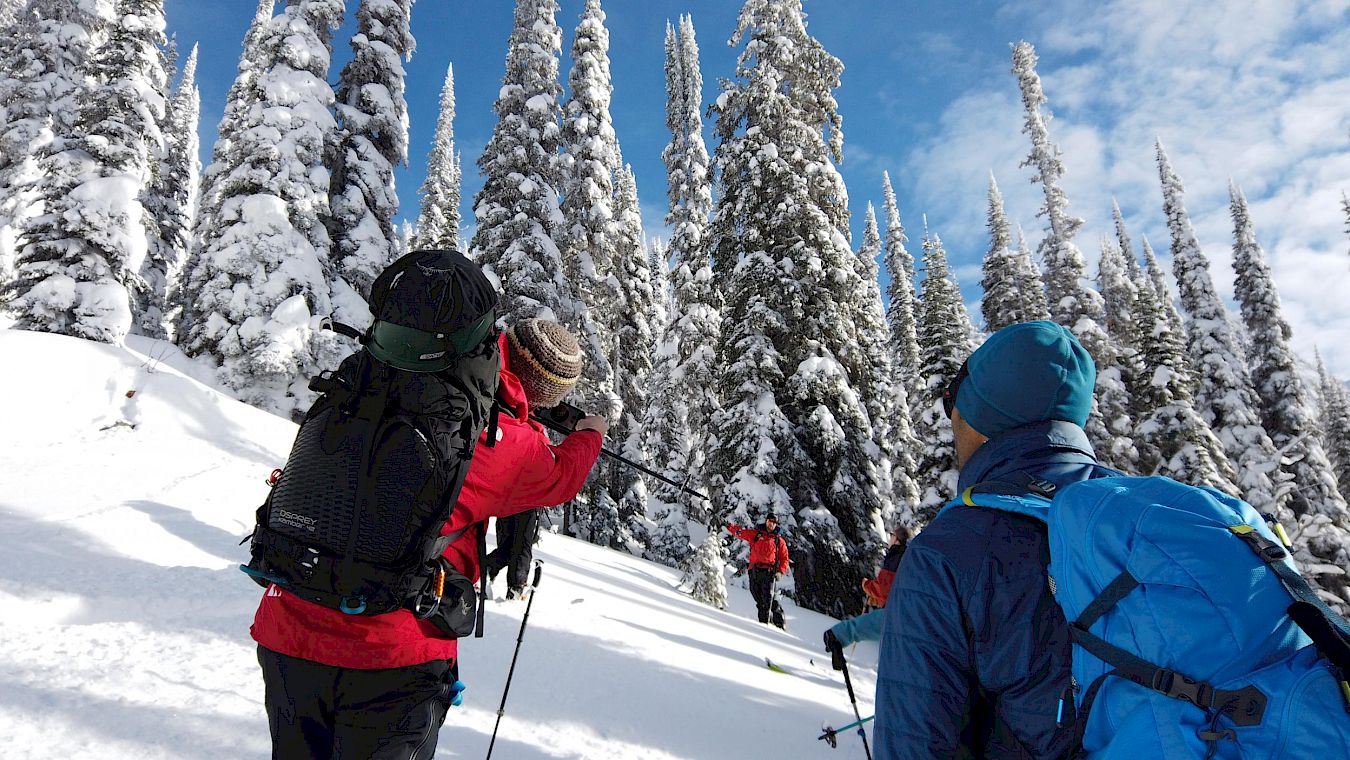
An Education in Powder
I moved to Canada (and specifically to Whitewater) because I wanted to get into backcountry. My childhood and early adult life had mostly been a mixture of French alpine groomers: slackcountry was about as gnarly as it got. But now I was here, I had a conundrum. Do I go touring a few times so I don`t look like a complete splitboard newbie on my AST? Or do I take my AST first so I don’t potentially die whilst I’m touring? Sense won over vanity and I booked onto the first Avalanche Skills Training course of the season run by the patrol team at Whitewater.
Most AST1 courses take place over 2 days. 1 is spent in the classroom learning the theory of route planning and avalanche prevention; then the second day is spent out in the backcountry, digging snow pits, reading the terrain and practising avalanche rescue. Whitewater runs it a little differently. An AST with Whitewater will take you 2 ½ days. Normally run across a weekend, everyone meets at 4pm on a Friday evening for a 5 hour theory session. Covering all the educational material at this time, means that Saturday daytime opens up for some practical experience out in the field.
Having met my group and sat through some lectures and a slideshow the night before, I woke up on Saturday morning full of nervous excitement. We gathered early to assess the weather conditions, make a route plan and recap our itinerary for the day. It was blue skies but -18⁰C. Brrrr. After bumbling around for 10 minutes putting skins on my splitboard, we hiked up to Silver King ridge where we set up shop for the day to learn all about unsupported convex slopes, how to use transceivers to find buried people, and special techniques on how to dig them out.
It was a beautiful day. An educational day. A cold day. The one thing I didn’t realise about taking an AST course is that there is lots of standing around once you’ve got out there. I ‘doubled down’ with my down jackets and was still a bit cold (but then I am from England). I think wearing a cap instead of a toque was my main mistake. I’d highly recommend being prepared to stand still in a blizzard for 3 hours. If you’re prepared for that, you should be fine.
Sunday was an altogether different story weather-wise. We were socked in with a pretty heavy snowstorm, meaning visibility was poor but it was slightly milder in temperature. Again, we met early as a group to discuss trip planning and re-assess the avy conditions for the day, before throwing our gear together and heading up the mountain. We wound our way up through the trees to reach Sherpa Peak, where we spent an hour digging pits, assessing snowpack stability and looking at snowflakes through microscopes.
After riding down through some fresh powder, we practised putting our companion rescue skills together with a mock avalanche burial on some in-bounds terrain. Our group successfully managed to dig 3 ‘people’ out of the snow within 12 minutes – giving those buried an 80-90% of survival. Not too shabby.
Overall, the course was great. The patrol team of instructors were fantastic at allaying fears, answering questions and giving advice on gear, touring routes and how to stay safe. Not only that, but the course also gave me 7 new buddies to hit up when I want to go hiking for some fresh tracks. Time and money well spent I’d say.
Top tips on taking an AST1:
- Don’t be scared you’re not good enough! If you can get yourself down a black diamond trail, you’re plenty good enough for an AST.
- Wear lots of clothes/take some layers. You’ve got to dress for touring, but also need to be prepared to stand around at the top of a mountain ridge for a while. Be savvy.
- Don’t stress if you’ve never been touring before. Whether you’re on skis, a splitboard or snowshoes, you’ll get up the mountain somehow. No-one minds if you take 10 minutes longer than the person who has been running up Kootenay mountains since they were 7.
Interested in doing some Avalanche Education? Whitewater runs courses in Avalanche Awareness, AST1, Companion Rescue Skills and Managing Avalanche Terrain. For further information, dates and prices, click here.
Written by Bex Dawkes